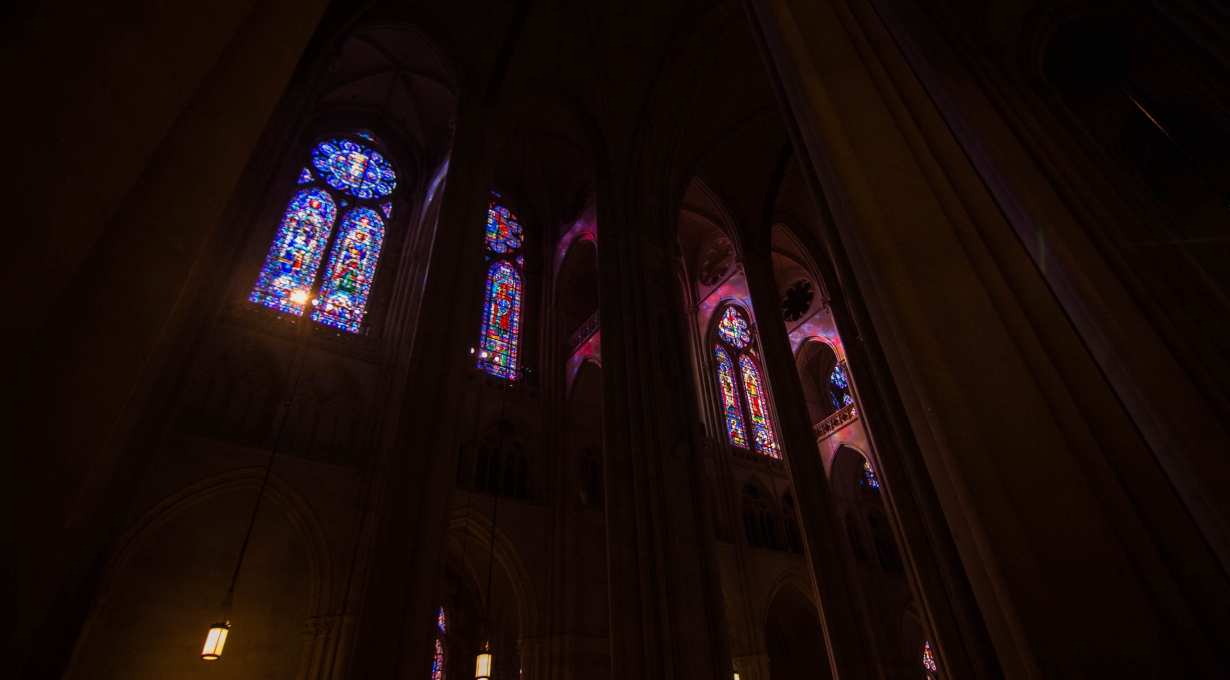Unpacking White Privilege

In his sermon this Sunday, Dean Daniel reflected on the four epidemics in our society: the coronavirus pandemic; the epidemic of failed leadership from the current administration in Washington; the powerful epidemic of uprisings in the wake of the killing of George Floyd, Breonna Taylor, Tony McDade, Ahmaud Arbery and countless other Black people by the police; and the epidemic of systematic violence that is the through line between the first three.
A part of that violence, he said, is caused by the white privilege that creates a system in which Black people are disproportionally killed by police, in which COVID-19 kills more Black and brown people than it does white, and where many white people have never had to understand the system or their own advantages because of it.
White privilege as an idea was first introduced by Peggy McIntosh, a professor of women's studies at Wellsley College, in a paper where she listed over 20 specific examples of her privilege as a white person including, "I can criticize our government and talk about how much I fear its policies and behavior without being seen as a cultural outsider," "I am never asked to speak for all the people of my racial group," and "If I want to, I can be pretty sure of finding a publisher for this piece on white privilege."
The term "white privilege" can cause some white people to bristle, thinking that it is intended to assert that no white people have faced challenges, overcome hurdles, or worked hard for what they have, which is not the case. The point is, rather, that the challenges and hurdles that white people have overcome were not because of their race, and that people of color face all of those and more.
It's been heartening over the past several days to see such a broad coalition of people standing up for racial justice. For everyone, and particularly the people of color who have been left sad, angry, exhausted, or numb by these recent examples of racist violence, the Cathedral is here for you in solidarity and support.
For those who are white, particularly those who might be waking up to their own privilege for the first time, the Cathedral is also here for you. Included below are links to a few resources on white privilege and race in America that we've been reading and reflecting on. We hope you'll join us as we look inward to ask: What are the ways I have experienced privilege? Have I acted in ways that use my privilege over other people? Why has this moment been such a galvanizing one for me and others? How can I do better?
White Privilege: Unpacking the Invisible Knapsack
Peggy McIntosh's paper first appeared in Peace and Freedom Magazine, July/August, 1989. It reads in part: "I have met very few men who are truly distressed about systemic, unearned male advantage and conferred dominance. And so one question for me and others like me is whether we will be like them, or whether we will get truly distressed, even outraged, about unearned race advantage and conferred dominance, and, if so, what will we do to lessen them."
James Baldwin: How to Cool It
In Esquire's July 1968 issue, published just after the death of Martin Luther King, Jr., the magazine talked to James Baldwin about the state of race relations in the country. When asked about what the average citizen, a "white man who lives on Eighty-ninth Street and Riverside Drive" should be doing, Baldwin responded, "If he feels he wants to save his country, he should be talking to his neighbors and talking to his children. He shouldn't, by the way, be talking to me."
The 1619 Project
The 1619 Project is an ongoing initiative from The New York Times Magazine that began in August 2019, the 400th anniversary of the beginning of American slavery. It aims to reframe the country’s history by placing the consequences of slavery and the contributions of Black Americans at the very center of our national narrative.